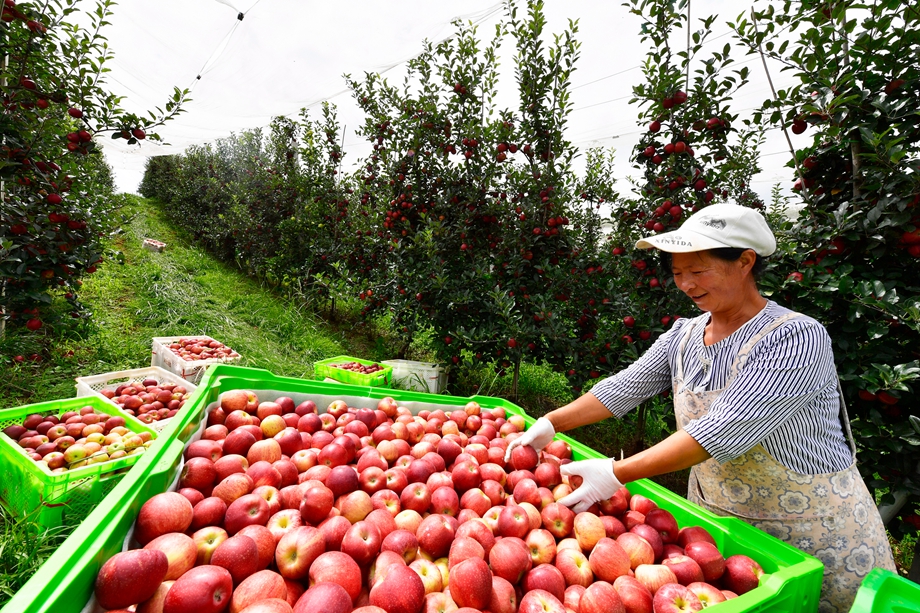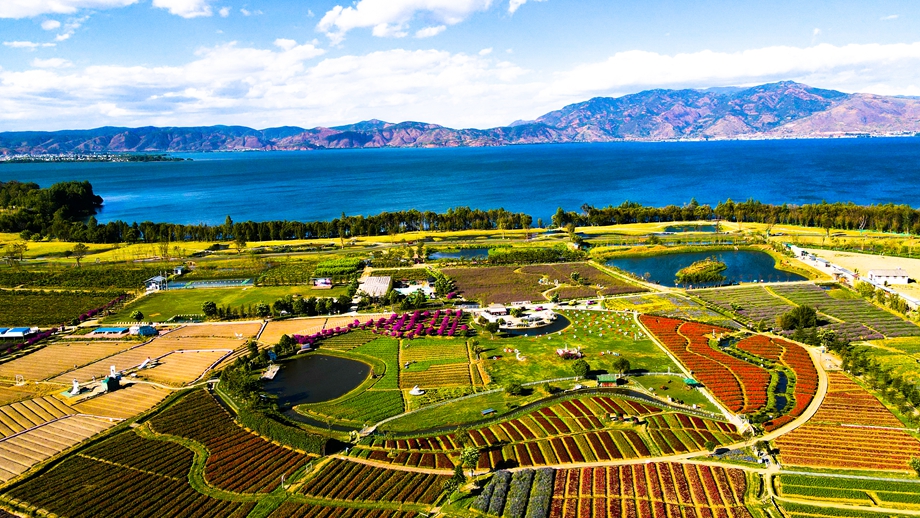Eric's Insight: Yunnan can take the lead in green development
China will prioritize ecological protection, conserve resources and use them efficiently, and pursue green and low-carbon development, Xi Jinping said at the opening session of the 20th National Congress of the Communist Party of China on October 16.

The 20th National Congress of the Communist Party of China (CPC) opens at the Great Hall of the People in Beijing on October 16. (Xinhua/Yan Yan)
Ecology or environment does matter, but on the other hand socioeconomic development can not be ignored, especially in the case of Yunnan. The province is still lagging behind economically compared with its domestic peers in coastal areas. So what’s the solution?
The answer lies in green development, where the ecology-economy balance could be kept. And in term of green development, Yunnan has the potential to be a national leader. Endowed with lush mountains and lucid waters, the province has been a major ecological shield for southwest China.
The snow-capped peaks and the lush Gaoligong mountain that extend for hundreds of miles are species gene pools straddling the China-Myanmar border, while the Three-parallel Rivers in northwest Yunnan is a treasure house for conserving national ecology and biological diversity.
“In the past decade, Yunnan has seen marked improvement in ecology. Provincial forest coverage increased from 50.03% to 65.04%, and the forest stock mounted from 1.693 billion cubic meters to 2.067,” said Liang Xudong, deputy director of Yunnan Development and Reform Commission, on August 12.
When visiting the Erhai lakeside village of Gusheng in west Yunnan’s Dali Bai autonomous prefecture in January 2015, Xi Jinping emphasized that economy should be developed, but not at the expense of destroying the ecological environment.
Since Xi’s inspection tour to Yunnan, the province has further shown its capacity in green development, featuring green food production, clean energy generation, biodiversity protection, and smart tourist services.

A farmer harvests apples in northeast Yunnan's Zhaotong city. Photo/Yunnan Daily
First, production of green food and clean energy stands out in China.
Yunnan made a decision in 2018 to build a world-class industry of green food. In the past years, the provincial output of major green food businesses has grown by 16% annually. The yearly output of vegetables, medicinal herbs, tea, and others has each exceeded 100 billion yuan.
Last year, the province registered 1,528 geographical indications for local green food, organic products and agricultural products. Now Yunnan holds 1,781 valid certificates of organic products, ranking second in Chinese provinces, said Xinhua on March 10, adding Yunnan green foods have been exported to more than 110 countries and regions.
As is observed by Xi, lucid waters and lush mountains are invaluable assets. In its effort to cut CO2 emission, Yunnan has turned to clean energy, which has grown to be the largest industry in the province.
“The installed capacity of green energy in Yunnan has increased to 95 million kilowatts in 2021,” reported People's Daily on August 29, noting the province stood out among Chinese provinces in clean energy trade and non-fossil energy ratio.
Moreover, Yunnan has joined hands with the neighboring Mekong countries in power supply. From January to June this year, Yunnan International Company of China Southern Power Grid finished trading 1.43 billion kWh of electricity with the Mekong countries of Vietnam, Laos and Myanmar, a year-on-year increase of 59.24%.

Tourists enjoy leisure in northwest Yunnan's Lijiang old town. Photo by Yao Chengcheng (Yunnan Daily)
Second, biodiversity and smart tourism are strengthened by international events.
Yunnan has long been dubbed as the kingdom of animals and plants, with many of its species accounting for over half of the national totals.
Shortly before the first stage of the 15th Conference of the Parties (COP15) to the United Nations Convention on Biological Diversity in October 2021, the "nose-broken family" of Yunnan elephants had a northward odyssey, making a hit home and abroad.
The roaming elephants have become a vivid case of ecological civilization and biodiversity protection in Yunnan. Later, the local awareness in eco-conservation was further strengthened by the COP15 meeting.
Over the past decades, the number of wild Asian elephants in Yunnan has increased from around 150 to 360, while the number of the once-rare Yunnan golden monkeys has amounted to over 3,800 from less than 2,000 forty years ago.
Tourism is a typical green industry. In recent years, Yunnan tourism has made progress in its service quality. As one of the key activities of the 2022 China International Travel Mart, the Smart Tourism Innovation and Development Forum was held in Kunming, Yunnan province on July 22.
With constant improvements of the Go-Yunnan app, smart tourism has formed a trend in the province, serving 210 million tourists. So far, the tourist refund has reached 300 million yuan, and 99.63% the visitors to Yunnan showed approval of local tourist services.

A view of the Erhai eco-corridor in west Yunnan's Dali prefecture. Photo by Huang Xinglun (Yunnan Daily)
At present, Yunnan is embracing the idea of “Lucid waters and lush mountains are invaluable assets.” and cherishing the blue sky, green hills and fertile land more than ever, in a bid to be the national pacesetter in ecological conservation.
In the future, provincial authorities need to further join hands with environmentally-friendly businesses and local residents for even greener development.
(The writer Eric Wang Shixue is an English editor with the Mekong News Network based in Kunming, Yunnan province. The view in the article does not necessarily represent that of Yunnan Gateway.)








